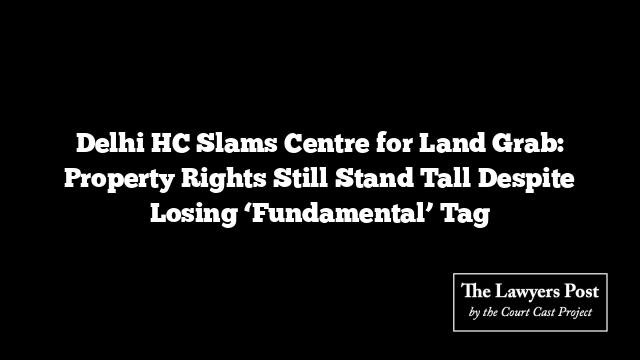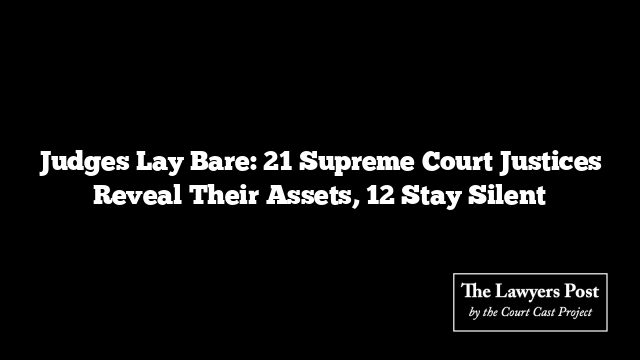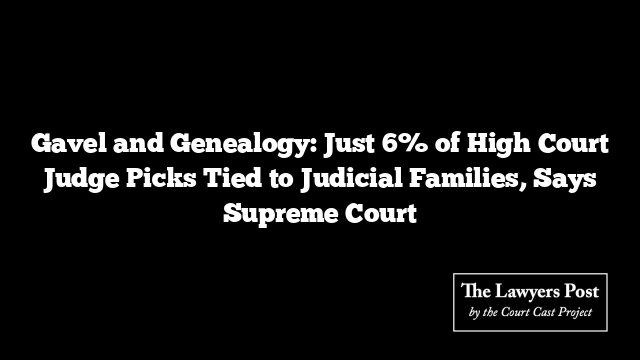In a scathing rebuke to State overreach, the Delhi High Court has declared that the right to property, though no longer classified as a fundamental right, remains deeply entrenched in India’s constitutional fabric and cannot be trampled upon without lawful authority.
The ruling comes in the case involving the late HK Sarin, whose flat in Delhi was held in prolonged and illegal occupation by the Central government for over two decades. The Court minced no words in asserting that Article 300A of the Constitution—though often overlooked—is a living, breathing safeguard that places strict limits on the State’s power to seize what rightfully belongs to citizens.
“No person shall be deprived of their property except by authority of law,” the judgment thundered, stressing that this isn’t just constitutional lip service but a principle anchored in procedural fairness and the rule of law. The bench emphasized that when the State steps outside its legal bounds, it cannot hide behind its authority. It must answer, and it must pay.
Justice Purushaindra Kumar Kaurav, who authored the ruling, didn’t hold back: “The State must not only comply with the letter of the law but act in a manner that is fair, just, and equitable. When the protector of rights becomes the violator, the very foundation of constitutional democracy is shaken.”
The story began decades ago. During the Emergency in 1975, Sarin became a target—raided and slapped with a detention order under the Conservation of Foreign Exchange and Prevention of Smuggling Activities Act. Though the order was later withdrawn, the shadow of those turbulent years lingered.
In 1980, a notice under the Smugglers and Foreign Exchange Manipulators (Forfeiture of Property) Act (SAFEMA) was issued against Sarin’s property. But the government took its time—eighteen years, to be precise—before actually passing the forfeiture order. By then, the lease to the Directorate of Estates had long expired (in 1995), and rent payments had ceased following the 1998 forfeiture.
The Court found that from 1999 to 2020, the government’s hold on the flat was outright unlawful. As a result, Sarin’s heirs were deemed entitled to mesne profits—compensation for the illegal use of the property. The Court pegged the final figure at ₹1.76 crore after adjusting for arrears already paid.
This ruling doesn’t just resolve a decades-old property dispute. It sounds a constitutional alarm: Article 300A is not a dead letter. The State cannot take what it hasn’t earned, and if it does, it will pay—both in law and in equity.





